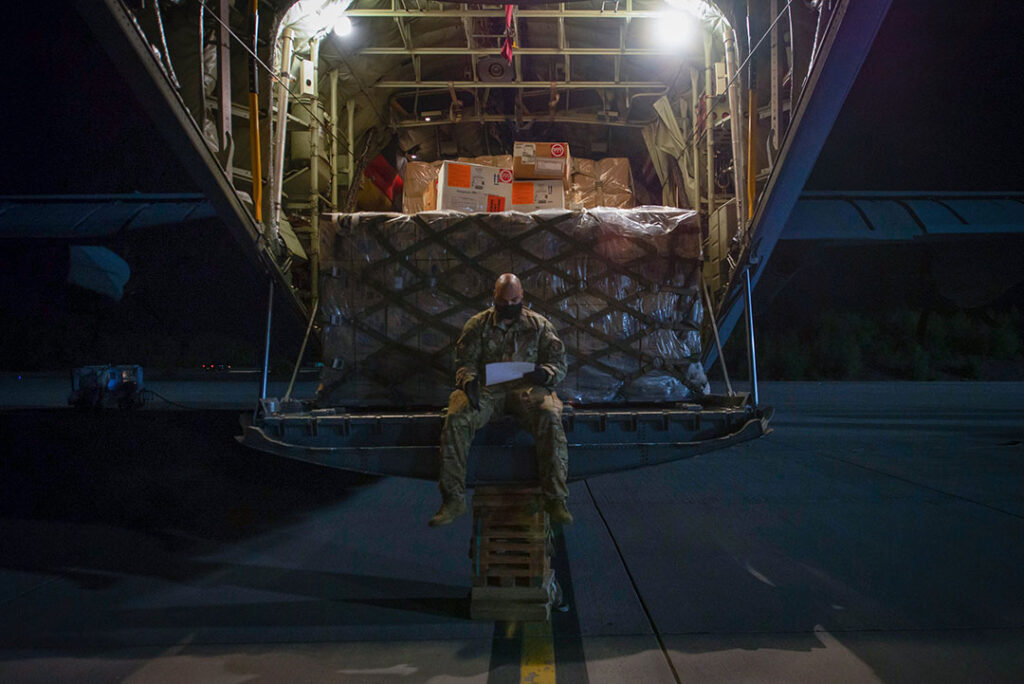ADF STAFF
U.S. Africa Command (AFRICOM) delivered about $340,000 worth of masks, gloves, medical gowns and sanitizing supplies to the South African National Department of Health as the country works to control the spread of COVID-19.
AFRICOM also will help install hand-washing stations valued at $225,000 in the Gauteng, Eastern Cape and KwaZulu-Natal provinces, where the number of new infections spiked in July.
The U.S. “is focused on mission and the fight against COVID-19,” Lt. Gen. Kirk Smith, AFRICOM’s deputy commander, said in a news release. “The contributions of critical personal protective equipment and supplies help South Africa and reflect our commitment to partnership in Africa.”
The U.S. has contributed more than $46 million to support South Africa’s response to the deadly virus since the first infection was confirmed there March 5. The August 15 shipment of medical supplies to O.R. Tambo International Airport in Johannesburg was to benefit front-line health care workers.
Nearly 1,400 — or about 5% — of South Africa’s health care workers have tested positive for COVID-19, and almost 250 of them have died, Health Minister Zweli Mkhize reported in mid-August.
“We salute these fallen soldiers and pay tribute to them for their commitment to serving the people of South Africa right until the very end,” he said in a statement.
South Africa had logged more than 587,000 COVID-19 cases as of August 16, and nearly 12,000 deaths, according to the Africa Centres for Disease Control and Prevention. The nation has recorded nearly half the continent’s known cases.
Mkhize blamed late July’s surge of new infections on “virus fatigue,” saying that residents became lax about frequently washing their hands, wearing masks and practicing social distancing.
In response, the World Health Organization sent a surge team of 43 experts to South Africa to help manage patients, strengthen epidemiological efforts, and support prevention and control measures.
The rate of new infections declined in early August, but Mkhize warned residents that the pandemic still posed a deadly threat.
“We are not past anything,” he said in a recent news conference. “We are still the country with the fifth-highest positive cases in the world. … With the threat of resurgence very real, we would not want to repeat recent history witnessed in some countries and allow a second surge to wreak even further havoc.”
On the day of the U.S. donations, South African President Cyril Ramaphosa eased the country’s lockdown restrictions, allowing alcohol and tobacco sales, and reopening bars and restaurants. The rate of new infections has fallen from 12,000 a day in late July to a recent daily average of 5,000.
Ramaphosa said he hoped that loosening the lockdown would help revive the country’s battered economy, which was reeling before the pandemic, and bring relief to millions of people who have been forced out of work.
“We can remove nearly all of the restrictions on the resumption of economic activity across most industries,” Ramaphosa said in televised comments, adding that it “presents us with the greatest opportunity since the start of the pandemic to breathe life into our struggling economy.”

